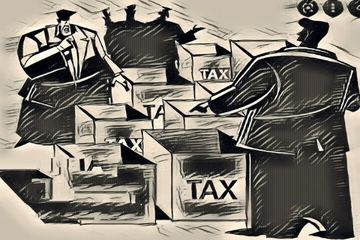Grade 5 Lesson 4: Types of #Taxes
In our last lesson we covered the definition of taxes – what they mean, why are they needed, who pays them etc. Today, we will look at the different types of taxes. There are several different taxes and each of these taxes form a “revenue-stream” for the government i.e. a way in which the government can get the #money it needs to keep the country running.
The key types of taxes are:
#Incometax: this is any tax on #salaries or #wages i.e. on any money that anyone makes via work. For the most part, #companies withhold, or hold back, a part of almost every worker’s pay. They send this money to the #government. After the end of the year, people send in income #taxreturns, which are forms that tell the government how much money they made. Some people then have to pay still more money, while others get back some of their money in a #refund. Typically, people who make more money pay a higher tax than people who make lesser money. For e.g., in the US someone making minimum wage may be paying 10% tax but someone making $500K+ may be paying 30%+ tax.
#Propertytax: Taxes on the value of #land, #buildings, and some large possessions (cars, for example) are called property #taxes. For e.g., lets say you own a Home. Each year, you may be required to pay tax for owning the property. Such a tax is called as property tax. Additionally, if you buy/sell properties, you may be required to pay taxes.
#Salestax: When people buy goods and services, they often pay a sales tax on top of the price. Sales tax is usually a certain percentage of the selling price. The way such a tax is determined and collected can be different in different countries. For e.g., in the #UnitedStates, each state has its own sales taxes. However, many countries have national sales taxes. #European countries use a form of sales tax called a value-added tax (#VAT).
In addition to the above, there are several other types of taxes such as:
- #Capitalsgains tax
- #Inheritence tax
- #Excise tax
- #Gift tax
As we learn more about #Finance and Taxes, we will do a deeper dive into each of the above.

ayu ecosystem #kids #education #financialliteracy